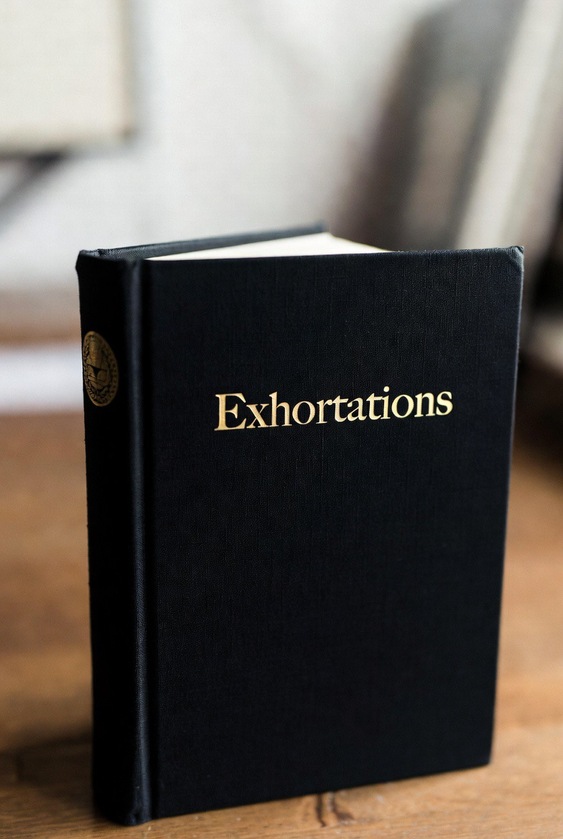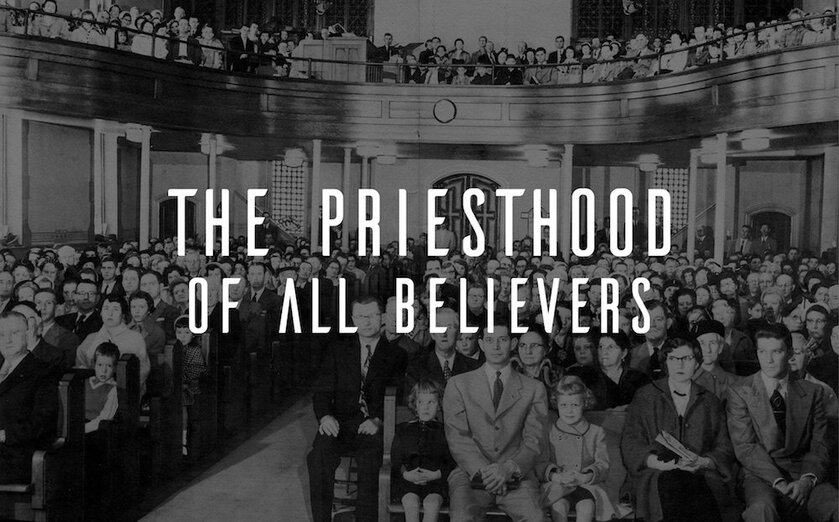Seizing Grace Today: Breaking Free from Felix’s Delay
Acts 24:25-26
"And as he reasoned about righteousness and self-control and the coming judgment, Felix was alarmed and said, "Go away for the present. When I get an opportunity I will summon you." At the same time he hoped that money would be given him by Paul. So he sent for him often and conversed with him."
The man who defers, who delays grace, who pushes aside the word of God for earthly concerns, may never know the peace that comes from God's salvation.
The apostle Paul is brought before the Roman governor Felix and his wife Drusilla to discuss matters of faith. He talks about righteousness and the fruit of the Spirit, self control specifically. Felix, a man known historically for his corruption and opportunism, feels the weight of these truths; he’s "alarmed" or "terrified" (depending on the translation), sensing the personal conviction. Hoping Paul might offer him a bribe to secure his release, Felix makes a vague promise to revisit the conversation later, all the while harboring this ulterior motive. His delay isn’t just procrastination; it’s a deliberate sidestepping of spiritual urgency for earthly gain. Felix’s story illustrates how conviction can stir the soul without leading to transformation, leaving someone in a state of spiritual unrest. He experiences the fear of judgment but clings to his vices.
The truth about this story is that it substantiates an eternal principle, that being there is never a better time than the present. One example that comes to my mind has to do with my job. In my conversations with potential clients I often get asked about the timing of these planting projects I'm contracting.
Typically they'll say, "what's the best time to do this?"
I usually answer, "right now is as good as any."
And I'll probably follow that with more comments about Spring has its advantages over summer, but fall has its advantages overall, but honestly there is no "best" time but the present. Get the project started as soon as possible and do the work right and you'll have accomplished what needs to be done and begin the process of getting to where you ultimately want to be. Delaying the work for "a more opportune time", usually takes the steam out of the conviction, resulting in a reduced sense of urgency. Very often the procrastination leads to nothing being done, which ironically is why many of them called our company in the first place, because they've allowed their landscaping to become a mess over much too much time.
In that city where Paul was being kept there was always a conflict between the Jews and the Greeks about who was in control of the city of Caesarea. The population was mixed, with a significant Jewish community alongside "Syrians", a term Josephus uses for the predominantly Greek-speaking Gentile inhabitants who identified with the Hellenistic culture. These groups frequently clashed over issues of civic control, equal rights (isopoliteia), and dominance in the city, which Herod the Great had rebuilt as a showcase of Roman-Hellenistic architecture but on land with deep Jewish ties. According to Josephus, the core dispute stemmed from competing claims to the city’s identity: Jews argued for precedence because Herod, their king and a Jew, founded modern Caesarea, while the Syrians/Greeks countered that the site was originally the pagan Strato’s Tower with no Jewish presence before Herod’s redevelopment.
So mob violence breaks out, and the Jews were victorious. Felix, in his intemperate manner, orders the Romans to sack the homes of the Jews. By 66 CE, these simmering conflicts boiled over. Greeks provocatively sacrificed birds outside a Jewish synagogue, desecrating it and sparking riots that led to the massacre of thousands of Jews and ignited the First Jewish-Roman War.
This all eventually results in Felix losing his authority, and he's banished by Nero. So his more convenient time to receive the word, not just hear it, but take it to heart, never arrives as far as we know.
The take-away? Repeated actions become habit. Bad habits are hard to break because they set a pattern in the brain. That is why conviction taken to heart and accepted as a reason to act on it, is always best acted upon while it's happening. No delay, because delay tends to dissipate momentum and leaves one mired in the very mess they sought to escape. The "right now" urgency I highlighted in my clients conversations mirrors the biblical call to seize the day of salvation (2 Corinthians 6:2), where hesitation can harden the heart and forfeit peace. Felix’s vague deferral ("when I get an opportunity" ) isn’t just a polite brush-off; it’s a symptom of deeper entanglements, where earthly pursuits eclipse eternal truths, leading to a life unresolved and untransformed.
2 Corinthians 6:1-2
"Working together with him [Christ], then, we appeal to you not to receive the grace of God in vain. For he says, "In a favorable time I listened to you, and in a day of salvation I have helped you." Behold, now is the favorable time; behold, now is the day of salvation."
Think about how these unchecked delays in stewardship, whether of a landscape garden or a persons soul, allows weeds of regret to overrun what could have flourished. This is why there really isn't a "best time", a more favorable time. Because every new day brings more problems of it own.
As Jesus said, (Matthew 6:34)
"Therefore do not worry about tomorrow, for tomorrow will worry about itself. Each day has enough trouble of its own."
It’s a powerful reminder to anchor ourselves in the present rather than borrowing anxiety from the future. In context of this scripture, this wraps up a passage where Jesus urges his followers to prioritize seeking God’s kingdom over material worries like food, clothing, or provisions. Jesus points out how God cares for birds and flowers, so why fret over tomorrow’s unknowns? Instead, tackle today’s challenges head-on, trusting divine provision. It’s not a call to recklessness but to faithful focus: tomorrow’s "trouble" (or "evil," in some translations like KJV) will come regardless, so don’t let it paralyze the now.
This circles back to Felix’s deferral. He pushed aside Paul’s message of righteousness, self-control, and judgment, waiting for a "more convenient time" while chasing bribes, essentially worrying about earthly gains and delaying spiritual action. But as Jesus teaches, each day carries its own burdens; Felix’s tomorrows brought escalating troubles in Caesarea’s ethnic clashes, his recall by Nero, and lost authority, with no evidence he ever embraced the grace offered.
What did he gain for all his delayed grace?
Nothing but more trouble.
My landscaping analogy fits perfectly here too. My clients who delay their projects often find their yards worsening with each season’s "troubles" (weeds, erosion, neglect, dying plants, years of unhappiness and lack of beauty), just as spiritual procrastination lets conviction fade amid life’s accumulating messes.
Grace, like planting, is best seized today, before tomorrow’s inevitable complications arise. And once the planting (conversion) is accomplished, then the business of nurturing and sustaining Grace can get underway. You can't stay just on the outside in the uncultivated ground of redemptions convictions waiting for someday. You've got to step up to the cross and cross through that gateway into God's garden of salvation and sanctification. Grace isn’t a distant seed to be sown "someday," but a present invitation to plant roots in fertile soil before life’s weeds choke out the only good opportunity.
My analogy of the post-planting phase of nurturing the new landscaping (faith) mirrors sanctification. Watering with the Word, pruning through trials, and yielding the fruit of self-control and righteousness that Felix glimpsed but never harvested. Biblically, this is reflected in Jesus’ parable of the sower (Matthew 13:3-23), where seeds fall on varied grounds; some paths hardened by delay, some rocky spots shallow in commitment, others thorny with worldly cares like Felix’s bribes, but only the good soil, receptive now, produces a crop.
I also alluded to John 10:9, where Jesus declares,
"I am the gate; whoever enters through me will be saved. They will come in and go out, and find pasture"
Look at what Jesus says, "They will come in and go out, and find pasture", it's an active lifestyle that enters and exits, and reenters. And so on and so forth. There is no procrastination there. Salvation must be worked out with action in order to bloom and produce a harvest. It cannot be left fallow by procrastination and still hope for success "someday".
Time is running out. The day of the Lord is coming. Stepping "up to the cross" evokes crucifying the old self to live by faith.
Galatians 2:20
"I have been crucified with Christ. It is no longer I who live, but Christ who lives in me. And the life I now live in the flesh I live by faith in the Son of God, who loved me and gave himself for me."
This living faith initiates that sustaining journey where grace isn’t static but grows through the Spirit’s cultivation.
Galatians 5:22-23
"But the fruit of the Spirit is love, joy, peace, patience, kindness, goodness, faithfulness, gentleness, self-control; against such things there is no law."
Making application:
Today, Felix’s story warns us that "someday" may arrive barren; his Caesarean tumults and exile stole any convenient season he might have genuinely longed for, leaving him with a life of unresolved conviction and misery.
And taking it to another level, this isn't just about wisdom and prudence for unbelievers. Did you know that many "religious" people linger at the unconvicted side of Christ's cross?
I have a friend who has served with me many times on prison ministry teams. He's a great person. And has walked into those dark places alongside his Kairos brothers sharing the gospel many times. And yet, he has delayed his moment of convicting grace. He and I talked about this often and finally one day he said to me, "Mike, I'm just not ready to face myself in that way."
That, I will tell you, is one of the most genuinely honest moments I've witnessed in my walk among the saints. My friend was being honest and vulnerable about his own self-control, or lack-thereof. I don't know what he feared to face, but whatever it is, I believe in that moment his words revealed his truest self. And I believe Christ knows him in a transformative way. I pray and hope he has finally come to terms with himself and found the time to face his own Kairos moment. We've not had the occasion to serve together for years now. I can only trust now that Christ is seeking him still, or better yet, found him already on his knees facing himself.
Friends,
So many are playing around on the fringes of faith. Putting on the mask and singing the lyrics but never going beyond that superficial religion. Praying the words, kneeling and genuflecting, paying the tributes, but never getting into God's hands. Be careful, procrastination never ends in fulfillment. Nothing gets better by leaving it left undone.
You can't resist the devil if you won't run to God. Being immersed in faith’s rhythms can hover on conviction’s edge and never evolve into sanctification. Proximity to grace, through ministry, rituals, or community, doesn’t equate to possession of it. Biblically, this fringes-of-faith dynamic surfaces in stories like the rich young ruler (Mark 10:17-22). Or consider the Pharisees, masters of external devotion (Matthew 23:23-28), but they are nothing but a facade over spiritual decay.
Are you genuflecting at the gate or stepping through it into sanctification’s garden?
If you answered yes to the former, stop it!
Undone faith festers, better to seize today’s conviction, face yourself in the mirror of the cross, and let nurturing grace begin its work in you.
Prayer:
Heavenly Father, in this moment of Your endless mercy, stir our hearts to act without delay. Help us to step beyond the fringes of faith, face our deepest selves at the cross, and plant the seeds of true surrender. May we embrace Your grace now, before tomorrow’s troubles arise, and grow in the peace of Your salvation.
In Jesus’ holy name, amen. 🙏🏼




















